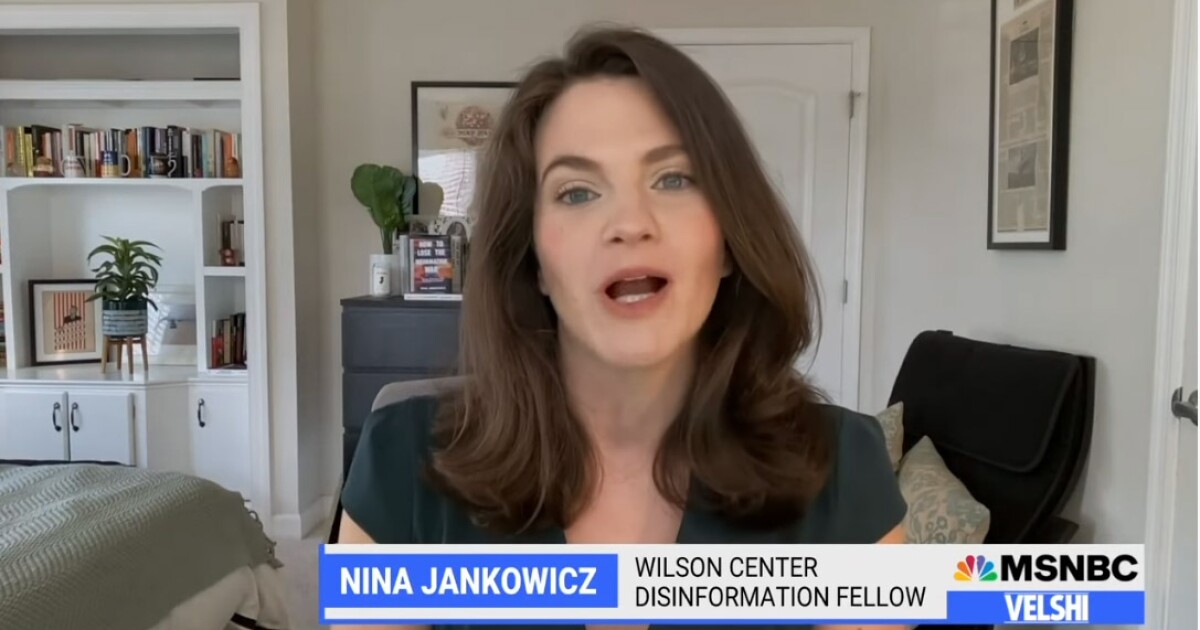

With her departure from the Biden administration’s disinformation panel this week, Nina Jankowicz became the latest aide to resign amid scrutiny of her past and questions about her future.
It’s a fate that has befallen a handful of others President Joe Biden has selected to staff his administration. An announcement of a nominee precedes a wave of criticism, eroding whatever support the individual enjoyed inside the White House.
WASHINGTON POST BLAMES ‘FAR-RIGHT INFLUENCERS’ FOR TANKING BIDEN’S DISINFORMATION BOARD
Jankowicz, like others before her, stepped down when the pressure of bad publicity became too big a distraction.
Others enduring a potentially bruising Senate confirmation process have withdrawn because they could not persuade enough senators to back their nomination, often because a parade of bad headlines began to scare off centrist Democrats.
NINA JANKOWICZ
A disinformation researcher whose experience in her field was touted as “extensive,” Jankowicz publicly lasted just a few weeks as head of the Department of Homeland Security’s Disinformation Governance Board.
The administration rolled out the creation of the board around the time billionaire Elon Musk had announced a successful bid to acquire Twitter, a deal that led to consternation on the left that Musk would soon allow disinformation to flourish on the platform.
The unveiling of the disinformation panel struck some critics as an ominous government response to Musk’s stated goal of permitting more free speech on Twitter and fit more broadly into a narrative on the right that liberals seek to discredit any content they don’t like by characterizing it as dangerous.
Critics dug up embarrassing details from her past, including clips of music she performed with her Harry Potter-themed band and tweets in which she herself spread misinformation.
BIDEN DISINFO CHIEF PUSHED TRUMP-RUSSIA COLLUSION CLAIMS
Secretary of Homeland Security Alejandro Mayorkas faced questions earlier this month about Jankowicz’s background and claimed not to have known about her past before hiring her.
DHS indefinitely suspended the operation of the disinformation board this week, and Jankowicz submitted her resignation around the same time.
SAULE OMAROVA
Biden’s pick for a key banking regulatory post bowed out of contention after concerns about her left-wing economic views spread from Republicans in the Senate to Democrats.
Saule Omarova was tapped by Biden in September for comptroller of the currency, an oversight position at the Treasury Department.
Lawmakers raised concerns that Moscow State University, which she attended on the V.I. Lenin Personal Academic Scholarship, would not release a copy of her college thesis. Omarova’s thesis was titled “Karl Marx’s Economic Analysis and the Theory of Revolution in The Capital” and presumably focused on the left-wing theory of labor and capitalism in Das Kapital.
Omarova had more recently written a paper that drove fears within the banking industry that she would seek to exert too much control over smaller community banks.
After facing skepticism from Democratic Sens. Joe Manchin, Kyrsten Sinema, and Jon Tester, as well as from all Republicans, Omarova withdrew from contention for the position in December.
DAVID CHIPMAN
Biden’s selection to lead the Bureau of Alcohol, Tobacco, Firearms and Explosives drew almost immediate protest from the Right due to his history of advocating gun control.
David Chipman is himself a former ATF agent with years of experience working in the field of firearm policy.
But Chipman’s past work included working for an anti-gun group that pushed for exposing gun manufacturers to liability if their guns are used in crimes and limiting magazines that can hold more than 10 rounds of ammunition.
His nomination sparked objections from pro-gun groups.
His previous statements about the 1993 siege of a religious compound in Waco, Texas, proved even more controversial for Democrats, however.
Chipman was on record as having falsely claimed that two helicopters were shot down during the melee at the compound.
Biden announced Chipman’s nomination in April alongside a round of executive actions aimed at addressing gun violence. By September, he had withdrawn Chipman’s nomination, blaming Republicans in his statement even though Senate Democrats’ skepticism led the White House to determine his nomination had no path forward.
SARAH BLOOM RASKIN
Manchin helped sink the nomination of Sarah Bloom Raskin, the nominee for vice chairwoman for supervision at the Federal Reserve who served previously at the Fed and in the Treasury Department.
Bloom Raskin had come under scrutiny not just for her liberal views but for the generous treatment a private company received from the Fed after she joined its board.
Republicans objected to past statements she had made about the environment and the Fed’s role in promoting a green agenda, leading to fears in the GOP that she would use her position, if confirmed, to pick winners and losers in the energy sector.
Controversy also surrounded Bloom Raskin’s sale of stock she owned in the private company Reserve Trust for $1.5 million in 2020. The company received special access to the Fed’s payment system following Bloom Raskin’s reported personal intervention on its behalf.
Following Manchin’s release of a statement in March opposing her nomination, Bloom Raskin withdrew her nomination.
NEERA TANDEN
Biden’s initial choice to lead the Office of Management and Budget, Neera Tanden, was already well known in Democratic circles from her role as head of the Center for American Progress, a liberal think tank.
But she was also well known for something else: a pugilistic social media presence.
Tanden had regularly attacked senators — mostly Republicans but, on occasion, Democrats — in snarky tweets, hundreds of which she deleted in the days before her confirmation hearing.
Despite the apology Tanden issued during her hearing, her tweets proved an insurmountable obstacle during the confirmation process.
CLICK HERE TO READ MORE FROM THE WASHINGTON EXAMINER
Sen. Susan Collins (R-ME) one of the most centrist Republicans in the Senate, said when announcing her decision to oppose Tanden’s nomination that Tanden’s online persona represented “exactly the kind of animosity that President Biden has pledged to transcend.”
Tanden withdrew from the process in March of last year.





